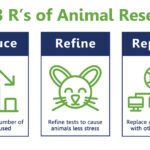The legality surrounding the consumption of domesticated animals, particularly dogs, in the United States is a perplexing conundrum that elicits strong emotional responses. While it might seem unfathomable to many, the reality is that laws concerning the eating of pet dogs vary significantly across different states and municipalities. This article aims to dissect the complex legal landscape, societal norms, and ethical dilemmas surrounding this contentious subject.
To begin with, it is paramount to recognize that there is no federal law prohibiting the consumption of dogs in the U.S. Unlike certain countries where legislation explicitly bans the practice, the United States has primarily refrained from enacting such prohibitions at the national level. This lack of federal regulation does not imply permissiveness across the board; rather, it underscores the decentralized nature of legislative governance in the U.S., where states possess the autonomy to formulate their own statutes.
Currently, the legality of eating dogs is determined by state laws, some of which explicitly prohibit the slaughter or consumption of pet animals, while others remain silent on the subject. For example, in states like California and Illinois, there are explicit statutes that criminalize the slaughter of companion animals for food. Conversely, other states, such as Wyoming and Idaho, have no specific laws addressing the issue. This creates a confusing and inconsistent legal framework that leaves both pet owners and animal rights advocates questioning the implications of their actions.
The absence of a universally applicable ban raises critical ethical questions. It is essential to consider societal attitudes towards pet ownership and their interplay with cultural norms. In American society, dogs are typically viewed as companions, integral members of families, and not food sources. This perspective is deeply ingrained in the cultural fabric and impacts everyday behavior. People who consider their dogs as family members are often horrified at the notion of consuming them, viewing it as an insidious violation of trust. The emotional bond that exists between humans and their pets is often juxtaposed against the stark reality of animal consumption, inciting vehement opposition from animal rights organizations.
In examining societal reactions, one must acknowledge the diverse cultural backgrounds that exist within the U.S. Various immigrant communities bring with them differing views on the consumption of animals. In some cultures, consuming dog meat is a long-standing tradition, whereas, in others, it is abhorrent. These conflicting perspectives lead to a unique cultural dichotomy that shapes discussions on animal rights and dietary choices. Advocacy groups argue for the ethical treatment of all animals, framing the debate around the broader theme of kindness, compassion, and moral responsibility.
Furthermore, the legal framework, or lack thereof, around dog consumption raises questions about enforcement and regulatory practices. Even in states where laws exist against slaughtering dogs for food, enforcement can be lax. Authorities might prioritize other crimes, leaving such violations inadequately addressed. The patchwork of laws across states creates challenges for advocates and raises concerns about the effectiveness of animal protection measures. Establishing a more unified legal approach could enhance advocacy efforts and align societal values with legislative practices.
Another aspect worth noting is the psychological implications for individuals who may consider consuming their pets. The psychological ramifications of such acts are substantial. Pet ownership typically fosters profound emotional attachments that supersede mere companionship; eating a pet can compel owners to grapple with feelings of guilt, shame, and societal condemnation. The stark contrast between the act of love and the act of consumption can lead to cognitive dissonance, where personal beliefs and actions are at odds. This internal conflict further cements the social stigma associated with the practice.
In addressing the economic dimensions of the issue, it must be noted that the pet industry in the United States is a multi-billion dollar enterprise, primarily built around the premise of animal companionship. The pet food industry thrives on the nurturing of domestic animals, with the overarching goal of catering to their dietary and health needs. To engage in the consumption of dogs would characterize a radical departure from this lucrative market, undermining the established norms of pet ownership and care. This economic incentive acts as a deterrent against the practice, reinforcing the cultural view of dogs as pets rather than food sources.
Although it is currently legal in certain jurisdictions to consume dogs, such actions are fraught with societal disapproval, ethical dilemmas, and emotional turmoil. The opposing forces of cultural perception, legal frameworks, and individual beliefs create a complex tapestry of considerations that inform discussions about animal rights and dietary practices. While some may advocate for the abolition of such practices through legislative measures, others engage in cultural dialogues aimed at fostering respect and compassion for all living beings.
In conclusion, while eating one’s own dog may not be explicitly illegal in certain states, the behavioral, psychological, and ethical implications surrounding the practice invoke considerable controversy. As societal values evolve and the collective consciousness around animal rights continues to gain momentum, it becomes imperative for stakeholders to engage in open and compassionate discussions, paving the way for a more humane future for all animals. It is only through understanding, education, and active discourse that we can hope to reach a consensus that reflects our growing awareness of the crucial moral implications of our choices.






